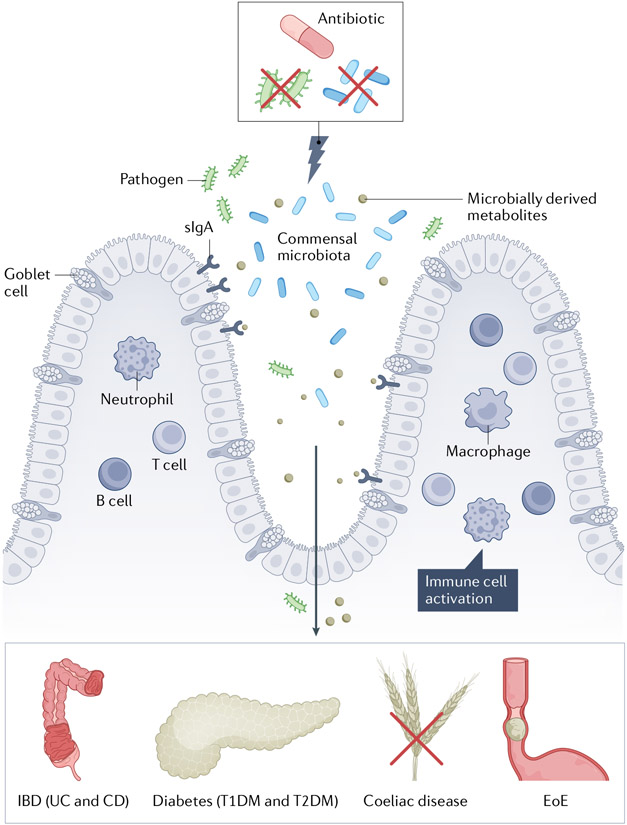Fig. 1 ∣. The gut microbiota and antibiotics in the pathogenesis of inflammatory diseases of the gastrointestinal tract.
Schematic overview of the role of the microbiota in the pathogenesis of inflammatory diseases injuring organs in the gastrointestinal tract, leading to the onset and development of both type 1 diabetes mellitus (T1DM) and type 2 diabetes mellitus (T2DM), inflammatory bowel disease (IBD; including ulcerative colitis (UC) and Crohn’s disease (CD)), coeliac disease and eosinophilic oesophagitis (EoE). Exposure to antibiotics leads to profound effects on both the composition and functionality of the gut microbiome, leading to decreased diversity. These changes might then lead to secondary effects involving the intestinal wall including altered epithelial cell signalling to adaptive immune effectors, and/or increased intestinal permeability, leading to translocation of microbial constituents and products into the systemic circulation, among other mechanisms. sIgA, secretory IgA.

